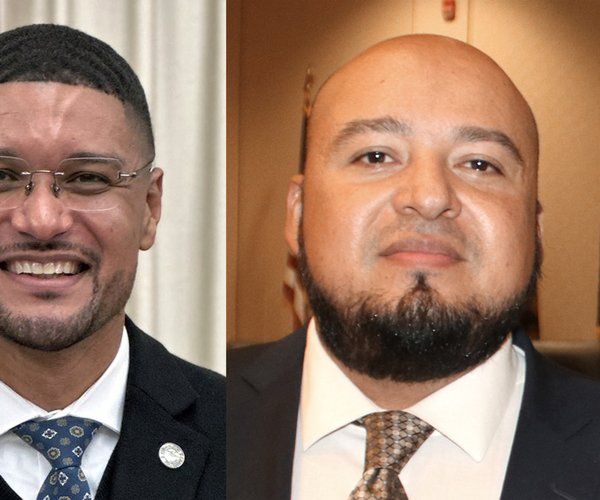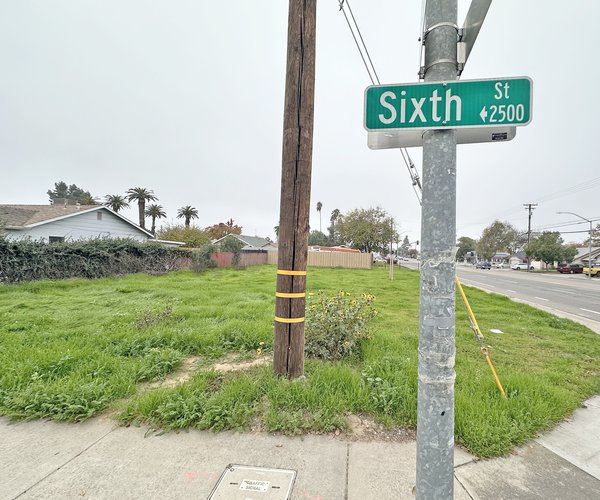Fed up with state mandates - and still stinging from draconian water cutback requirements it feels is punitive towards Ceres - the City Council voted unanimously on Monday to tell state officials they won't abide by certain rules for housing.
Because of the action, Ceres will not have a certified Housing Element, which is one of seven elements of a city General Plan.
The city is in the process of updating its Housing Element, which was intended to be in effect from 2014 to 2023.Officials with the state Housing and Community Development Department told Ceres that it must incorporate state laws for certain housing practices. For example, in March the council agreed to take action that carves out areas of Ceres that can be used as emergency shelters. The state is requiring all cities to have in their Housing Element of the General Plan an ordinance that outlines where emergency shelters may be established "by right."
However, on Monday the council stopped in its tracks as it was asked to allow residential care facilities such as nursing homes, transitional and supportive housing and migrant worker housing in all residential zones.
Tom Westbrook, director of Community Development for the city of Ceres, said all cities either have such provisions or will be forced to have them by the state. Not adopting those standards means Ceres won't have a certified Housing Element. Cities which don't have a certified Housing Element could stand to lose some state monies for housing programs, said Westbrook. One such program in jeopardy is BEGIN, or Building Equity in Neighborhoods. The program funneled $600,000 to help first-time homebuyers in a Richard Way subdivision in 2007. Currently $689,000 is allocated to Ceres.
Westbrook said the city could also face legal challenges from developers who say the city "doesn't have any programs to help with low-income housing."
"Low-income housing advocates could challenge the validity of your Housing Element because it's not certified."
Remembering the time she worked in the city Planning Department, Councilmember Linda Ryno recalled how numerous residents would angrily protest group homes in their neighborhood while the city was powerless to regulate them due of state law.
Despite the council's unanimous vote, Westbrook said the city has no legal basis to reject anyone who wants to set up transitional housing for the homeless if there are six or fewer residents.
"A lot of this is already existing state law, so if the council doesn't adopt this and somebody comes in, we can't tell them no anyway," said Westbrook.
That prompted Ryno to say: "We can show that if the state wants to ram it down our throat they can but we as a council want to say that we recognize our residential neighborhoods, we want them to stay that way, and that we don't agree with that."
Vice Mayor Bret Durossette agreed with Ryno.
City Manager Toby Wells said the council could take its stand against the state but warned the council of possible consequences, such as being a target for affordable housing advocates.
"The risk of not having a certified Housing Element really puts all development in jeopardy," said Wells, "because you're weak, not only in a CEQA challenge, but you're weak in any challenge. You're in essence telling the state that you can't meet the housing needs in your community."
Mayor Chris Vierra, who said he has "never been a fan of the requirements of the Housing Element," added to the protest.
"This is our community and the state seems to always tell us we don't know what we're doing when it comes to water," said Vierra. "What's wrong with us telling them they don't know how to do our Housing Element? We know what's best for our neighborhoods."
Vierra's comments reflected his angst over state policy that neglected to consider the dramatic water cutbacks that resulted from prior council action years ago while the state mandated that Ceres must cut back water use by 28 percent. He said Ceres is being penalized for conserving earlier and those efforts were ignored by the state.
"If they want to come back and ding us and we will be potentially at risk for litigation, my feeling is so be it," said the mayor. "I'm getting tired of the state coming in and telling me what they think they know what is best for us and I think it's about time that we send a message back to them that, no, we're not going to just roll over and accept everything that you want us to do."
Wells made one last attempt to point out that the Housing Element has been submitted, pending the last adoptions needed by the council.
"You can tell them that the council decided not to move forward with it," said Vierra.
Wells reminded the council that the city has no ability to reject anyone - because state law trumps city law - that they can't have those uses in residential zones.
Ryno responded, saying: "I would rather tell my neighbors that the state was ramming it down our throat, not the City Council."
Heralding the action was Ceres resident Leonard Shepherd.
"I've always had a fervent prayer that the cities of California, especially the smaller cities, would rise up and tell the state to stick it where the sun doesn't shine," said Shepherd. "And this is an opportunity, in my book, for the City Council of the city of Ceres to tell the state, ‘You don't know what's best for us.' Look at the mess we're in with the state of California ... the state's going to cram it down your throat but at least you're making a statement."
Shepherd said the idea of a nursing home is not bad but would create more traffic than a normal single-family.





